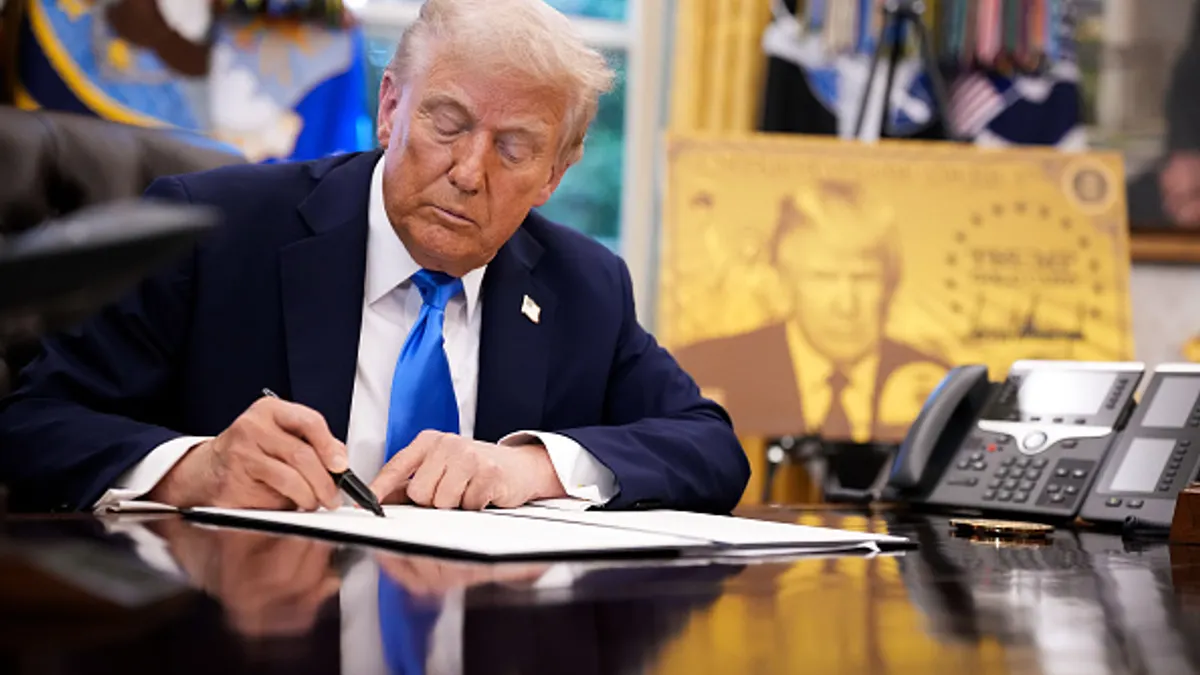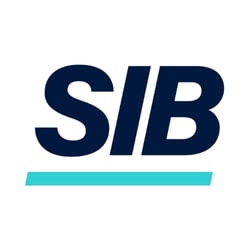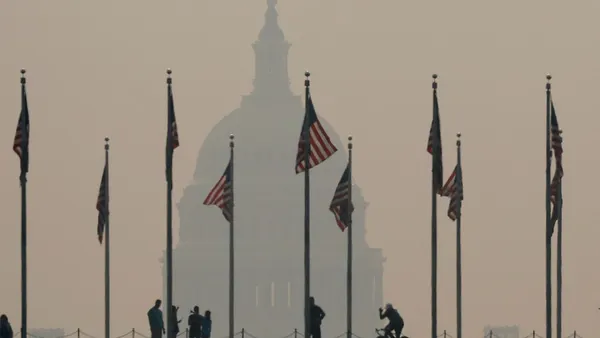Dive Brief:
- The U.S. Chamber of Commerce on Friday called on the Trump administration to withdraw its new $100,000 fee for H-1B visas over concerns that it could “impede economic growth.”
- Among other drawbacks, the fee would stifle domestic job creation as the high cost of the visas would incentivize certain business functions to move overseas, Neil Bradley, chief policy officer and head of strategic advocacy for the chamber, said in a letter to Commerce Secretary Howard Lutnick. The fee would be especially harmful to small, mid-size firms and startups who also use the visas but are less able to pay, he said, adding that it could also impair the ability of U.S.-educated foreign students to contribute to the economy while also reducing company funds available to invest in businesses.
- “For these reasons, we believe it would be beneficial for the administration to rescind the proclamation of September 19, 2025 imposing the new $100,000 fee and instead we encourage the administration to work with Congress to look at reforms to the H-1B program that could accompany an increase in the number visas annually available to meet the needs of our growing economy,” the letter states.
Dive Insight:
The H-1B is a temporary visa program with a typical initial duration of three years, which allows employers to petition for highly educated foreign professionals to work in certain “specialty occupations,” such as jobs in mathematics, engineering, technology and medical sciences, according to the American Immigration Council.
The visa category has been a hot button issue that has drawn renewed scrutiny since Sept. 19, when President Donald Trump announced that the administration would require an added $100,000 payment with petitions for H-1B visas, CFO Dive previously reported. The proclamation stated that the program has undermined the country’s economic and national security, and been, “deliberately exploited to replace, rather than supplement, American workers with lower-paid, lower-skilled labor.”
In its letter, the Chamber roundly supported the program, asserting the H-1B program has since 1990 helped grow the U.S. economy, noting that studies show that in computer programming H-1B workers complement rather than displace U.S. workers. While the U.S. workforce has grown by nearly 21 million people over the past 20 years, the number of H-1B visa has remained flat, it also asserts. The program is also not just exclusively used by the information and professional services sector, but rather across a number of industries, the letter states.
The sudden introduction of the fee is a “significant change to long-standing H-1B processes,” Bo Cooper, an attorney who specializes in immigration law at the law firm of Fragomen, Del Rey, Bernsen & Loewy, said in an email to CFO Dive last week.
“Employers will need to assess the financial impact of affected new hires, weigh the ROI of hiring new talent from outside the US, consider alternative visa options where appropriate, and adjust workforce strategies accordingly,” Cooper said last week.
The proclamation also allows a new kind of “national interest exception” structure that “offers a critical chance for employers to avoid massive needless costs that are not necessary to the administration’s announced goals by demonstrating the ways in which their ability to hire H-1Bs supports US national interests,” Cooper said, adding that litigation is expected which should be watched because judicial challenges might impact how the policy is applied.
Last week, Bloomberg reported that the U.S. Chamber of Commerce was seeking support from its members for a lawsuit against the Trump administration over the changes to the visa system, reportedly polling members about whether they’d back a legal challenge.
The Chamber of Commerce and the Department of Commerce did not immediately respond to requests for comments.
















